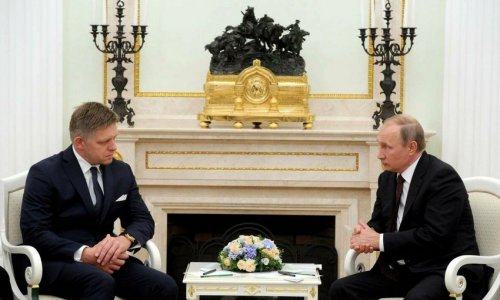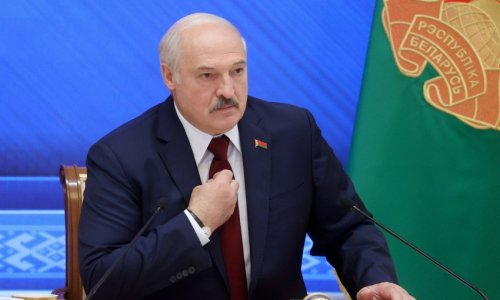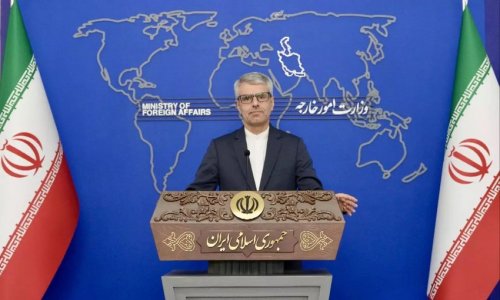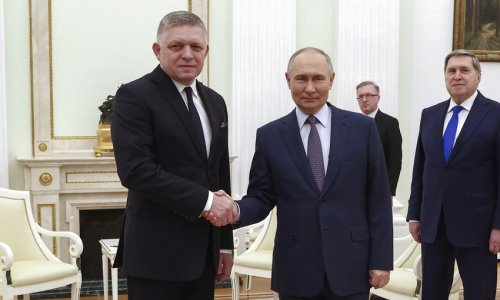Around the same time that attack was taking place on Sunday evening, Benjamin Netanyahu was charging Hamas on TV with using “human shields” to gather “telegenically dead Palestinians for their cause”. It has long been the Israeli case that the militants cynically and deliberately carry out attacks and store weapons in residential areas and have also stopped people living there from evacuating homes when fighting breaks out.There have been instances in the 13 days of the current war when the Israelis have sought to provide evidence proving their case. After warplanes targeted the al-Farouq mosque, near the Nuseirat refugee camp, for instance, the military issued aerial photographs which, it stated, showed that the building was being used to store rockets. We have also had the UN agency for Palestinian refugees, UNRWA, announcing that it had discovered 20 rockets hidden in one of its disuse schools in a “flagrant violation” of international law. And rockets are seen to be regularly fired from stretches of open ground close to homes.Are militants also deliberately placing themselves in residences which are then attacked? On the day that Al-Farouq was attacked, the Israeli military also carried out a missile strike on a home for the handicapped in Beit Lahiya, killing two disabled residents and injuring four others. A neighbour claimed that a member of the Islamic Jihad group and his wife had also lived in the building; but he could provide no names or dates for this.Jamilla Alaiwa, a 59 year old social worker who founded the home 24 years ago told me that this was categorically untrue. “If the Israelis have proof of this let them make it public. There was no one from Islamic Jihad or Hamas living there. We are not involved in politics.” The Israeli military stated they were investigating what happened; their conclusions have not reached Gaza. Were they, perhaps, fed false information?Some Gazans have admitted that they were afraid of criticizing Hamas, but none have said they had been forced by the organisation to stay in places of danger and become unwilling human-shields. The Bani Sobeila area, near Khan Younis, where the Abu Jamaa deaths took place received leaflets dropped from the air last week warning them to leave.But almost all stayed. One reason for that was many of the houses belonged to the Abu Jamaa clan who felt there was safety in staying together. Another reason was given by a neighbour, Abdullah al-Daweish: “Where do we go to? Some people moved from the outer edge of Khan Younis to Khan Younis centre after Israelis told them to, then the centre got bombed. People have moved from this area to Gaza City, and Gaza City has been bombed. It’s not Hamas who is ordering us in this, it’s the Israelis.”Why did they think the house targeted? “We don’t know,” said Saied Abu Jamaa, a cousin who was in his home next door when the blast took place. “Tawfiq, who is the head of the family, is a policeman, but why should he and his family and his neighbours die for that?” Tawfiq Abu Jamaa, 40, distraught figure in a brown jellabiya at the funeral was also at a loss to understand why he had lost his wife and eight children. The sole survivor has Nour, a son of four.There were 10 recently destroyed buildings on the half-hour drive from Khan Younis to Shujaiya, a town where 90 people had been killed in a 24 hours, an onslaught condemned by the Palestinian government of Mahmoud Abbas as a “heinous massacre”: and UN Secretary General Ban Ki-moon as “ an atrocious action”.Members of families who owned six of the buildings had moved in with relations and neighbours in the area. Their reason for staying behind was primarily because there was, they said, nowhere else to go. There were also declarations about not giving up one’s land, not giving in to invaders.There was denial of coercion by Hamas. “I am not going to go because I can do something Hamas cannot do”, maintained Nabil al-Masri. “I know from times before that if Israeli soldiers get into an empty house they will ruin it on purpose. Hamas cannot stop them going into my house if we leave, but, by staying here we can try to make sure that doesn’t happen.”Hamas can, however, be accused of making people complacent, repeatedly stating in the media that the Israeli warnings were psychological games and asking the population to ignore them. Some mentioned this as a reason for staying behind; returning home having initially left.The counter-argument to that was the need to prevent panic spreading. Almost 85,000 people have been on the move, overwhelming the shelters set up by the UN by sheer numbers. Classrooms meant for 30 now hold up to 70, one typical example was the Girls Preparatory Secondary School, at a suburb of Beit Lahiya in the north, with a capacity of 800 which has taken in 1600. Homes of relatives, a traditional source of refuge, are also feeling the strain.Yasir Hamidi had six additional mouths to feed, along with his family of four, once the bombing began; five more relatives had joined since the ground invasion. His salary from the Ministry of Health stopped even before the conflict started because Gaza’s Hamas administration is bankrupt. “The family members brought some money, but they had to leave almost everything else behind: we are living on my savings, but it will not last for long. After that, who knows?” Mr Hamidi spread his hands in resignation.Gazans point out that the outside world remains largely unaware just how small and confined the place is – just 25 miles long and just a few miles wide. It is blocked in by closed borders to Israel in the north and east and Egypt in the south. There is no route out by the sea to the west with an Israeli naval blockade. Getting to travel abroad is an excruciatingly long process.This may be due to Hamas and Islamic Jihad exporting violence, as Israel and Egypt claim, but it is the increasingly large percentage of the 1.7 million population being pushed by the violence into the already heavily congested centre, who are suffering as the relentless bombings and shootings continue.At the funeral of the Abu Jamaa family, as another body in a shroud was lowered into the grave, Saied, the cousin said: “ That is the only escape many of us will have from here.”(independent.co.uk)Bakudaily.az
The myth of Hamas’s human shields
World
15:00 | 23.07.2014
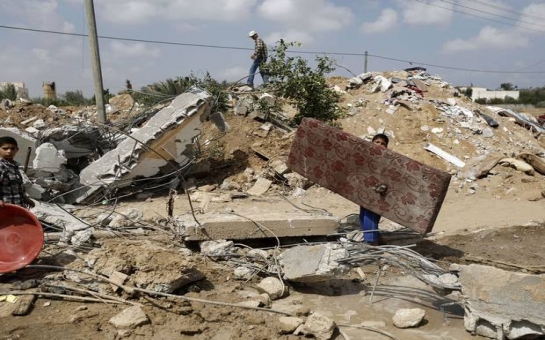
The myth of Hamas’s human shields
What used to be a three-storey house had been turned into debris sunk into a deep crater with twisted steel rods jutting out. Twenty-six people were killed in the mostly deadly air-strike so far in this bloody conflict. Twenty-four of them were from one family, the Abu Jamaa.
Follow us !


